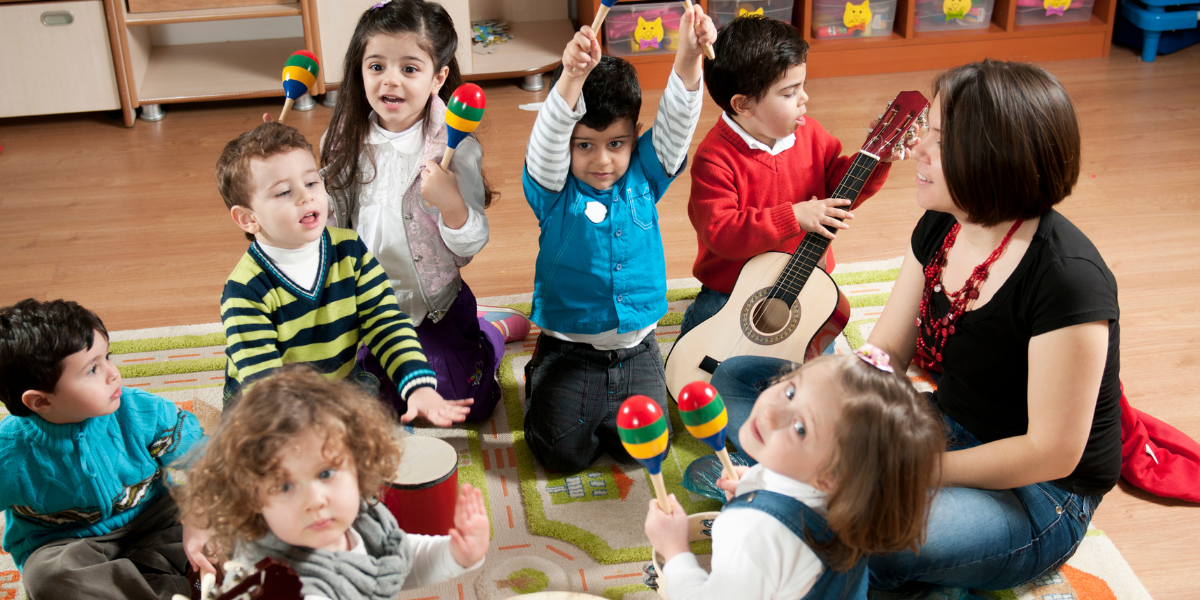The Benefits of Music Classes for Babies and Toddlers in Toronto
Music has been a fundamental part of human culture for centuries. It has the power to evoke emotions, tell stories, and bring people together. But did you know that exposing babies and toddlers to music can have numerous developmental benefits? In this article, we will explore the importance of music in early childhood development and discuss the benefits of music classes for babies and toddlers in Toronto. Plus, we’ll introduce you to Elite Music Academy, which offers a free trial lesson for your little ones!

The Importance of Music in Early Childhood Development
Cognitive Benefits
Introducing music to babies and toddlers at an early age can have a significant impact on their cognitive development. Listening to and engaging with music helps stimulate the brain, improving memory, attention, and problem-solving skills. Music can also foster creativity and encourage the development of critical thinking abilities.
Emotional Benefits
Music has a profound effect on emotions, and this is true for children as well. Participating in music classes can help babies and toddlers express their emotions and develop a greater understanding of their feelings. Music can also be soothing and comforting, helping to reduce stress and anxiety in young children.
The Benefits of Music Classes for Babies and Toddlers in Toronto
Social Interaction and Bonding
Music classes provide an excellent opportunity for babies and toddlers to interact with their peers and form social bonds. Participating in group activities, such as singing and dancing, helps children develop essential social skills, such as sharing, taking turns, and empathizing with others. Music classes also offer a chance for parents to bond with their children, strengthening the parent-child relationship.
Language Development and Communication Skills
Exposure to music at a young age can significantly enhance language development and communication skills. Music classes expose children to new words, sounds, and rhythms, which can help expand their vocabulary and improve their listening skills. Additionally, singing and playing musical instruments encourage children to express themselves and communicate with others.
Physical Development and Coordination
Participating in music classes can also aid in the physical development of babies and toddlers. Engaging in activities such as dancing, clapping, and playing instruments helps children develop their fine and gross motor skills. These activities also improve coordination, balance, and spatial awareness.
Elite Music Academy: Free Trial Lesson for Your Little Ones
If you’re located in Toronto and considering enrolling your child in a music class, Elite Music Academy is an excellent option. They offer a free trial lesson for your little ones, allowing you to experience their age-appropriate curriculum and highly qualified instructors firsthand. Give your child the gift of music and see the taking advantage of this fantastic opportunity!
Selecting the Right Music Class in Toronto
Age-Appropriate Curriculum
When choosing a music class for your baby or toddler, it’s essential to ensure that the curriculum is age-appropriate. Look for classes that offer activities and content tailored to your child’s developmental stage. This will help ensure that your little one is engaged, learning, and having fun.
Qualified Instructors
It’s crucial to find music classes taught by qualified instructors who are experienced in working with young children. Skilled teachers will create a positive learning environment, foster a love for music, and ensure that your child is progressing in their musical journey.
Convenient Location
Select a music class that is conveniently located near your home or workplace. This will make it easier for you to fit the classes into your busy schedule and ensure that your child has regular access to the benefits of music education.
Tips for Encouraging Your Child’s Musical Journey
Make Music a Part of Your Daily Routine
Incorporate music into your daily life by playing your child’s favorite songs or nursery rhymes, singing together, or using music during playtime. This exposure will help develop their love for music and reinforce the skills they learn in music classes.
Attend Live Performances
Attending live music performances is a great way to expose your child to different types of music and inspire their interest in learning an instrument. Look for family-friendly concerts and performances in Toronto that cater to young audiences.
Provide Opportunities for Musical Exploration
Encourage your child to explore various instruments, sounds, and styles of music. This exploration will help them develop their unique musical preferences and passions, making their musical journey more enjoyable and fulfilling.
Conclusion
Music classes for babies and toddlers offer a wide range of benefits, from cognitive and emotional development to social interaction and physical growth. In Toronto, Elite Music Academy provides a fantastic opportunity for your little ones to experience these benefits firsthand with a free trial lesson. By selecting the right music class and encouraging your child’s musical journey, you can set the stage for a lifetime of love for music and the numerous advantages it brings.
FAQs
Q: At what age should I start my child in music classes?
A: It’s never too early to introduce your child to music. Many music classes offer programs specifically designed for babies as young as three months old.
Q: How long should a music class for babies and toddlers last?
A: Music classes for young children typically last between 30 minutes to an hour, depending on the age and attention span of the participants.
Q: What instruments are best for babies and toddlers?
A: Age-appropriate instruments for young children include percussion instruments like shakers, tambourines, and drums, as well as small keyboards and xylophones.
Q: How can I support my child’s musical development at home?
A: Play music regularly, sing together, attend live performances, and provide opportunities for your child to explore different instruments and styles of music.
Q: How do I know if my child is ready to learn a specific instrument?
A: Observe your child’s interests and physical abilities. Consult with a qualified music instructor who can assess your child’s readiness and recommend the best instrument for them to learn.
https://elitemusic.ca/the-benefits-of-music-classes-for-babies-and-toddlers-in-toronto-exploring-elite-music-academys-free-trial-lesson/


